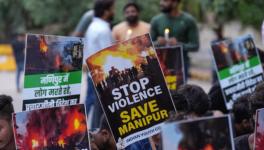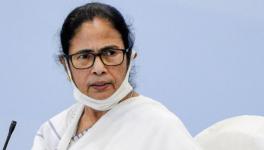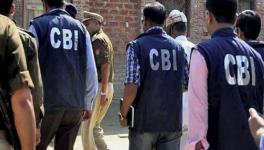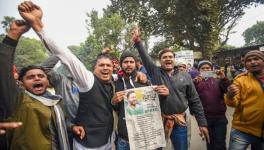Why Anti-CAA Protesters Recall Missing JNU Student Najeeb
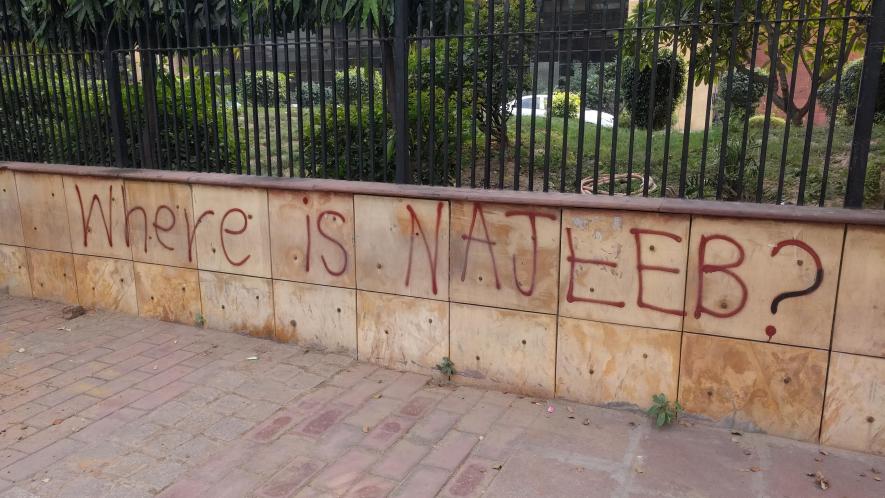
‘Where is Najeeb?’ Photo credit: Pulakit Singh, Wikimedia Commons.
The Wikipedia page titled ‘Disappearance of Najeeb Ahmed’ has the introductory line, ‘Najeeb Ahmed is a missing first year MSc Biotechnology student of Jawaharlal Nehru University, in New Delhi, India, who has been missing under suspicious circumstances since 15 October 2016.’ The story of Ahmed’s altercation with students belonging to the ABVP has taken several shapes and forms. He has been declared an ‘accused’ by the administration. Fellow students insist he is the victim, giving details of how he was badly beaten by a group of students despite the presence of authorities. Strangely, there is no verifiable account of his disappearance. His mother, Fatima Nafees, faced detention after she was dragged away by the police for protesting the state’s inaction over her son’s disappearance. ‘Where is my son?’ she asked in return and, often breaking down, she has been asking ever since.
A nine-player football team from JNU, named ‘Red Star JNU’, played in the Capital Carnival tournament on November 6, wearing jerseys with ‘Najeeb’ written on them. Predominantly Malayalis, the team said they had cancelled their Onam programme on October 22 as everyone was depressed about Ahmed’s disappearance. Najeeb’s disappearance has raised a series of ironies and questions, besides exposing the obvious risk faced by students belonging to the minority communities, even in elite academic institutions.
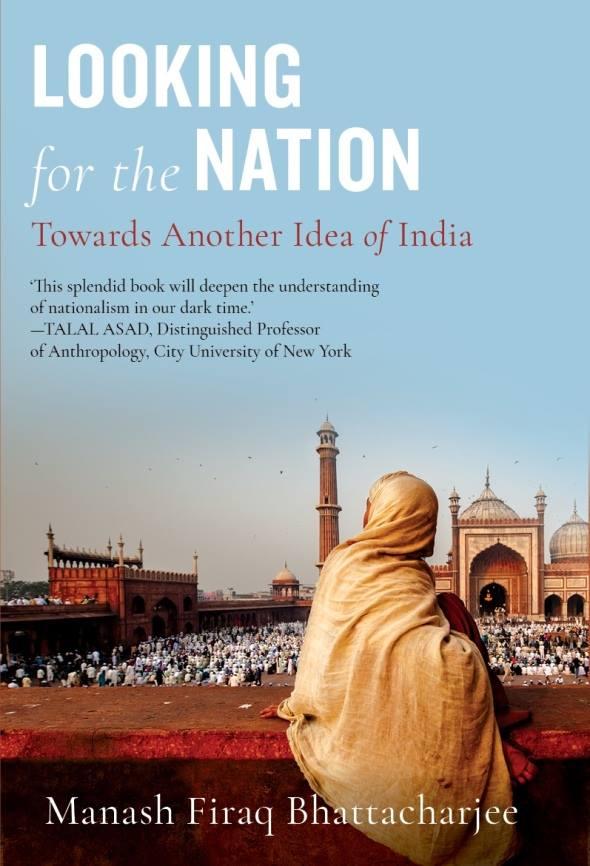
Najeeb is a disembodied name, looking for its body. Najeeb is looking for Najeeb. The nation doesn’t know where Najeeb is to be found. How come the long arm of the law falls short of finding Najeeb? Or is that arm being obstructed from finding him? Is something sacred being protected by Najeeb’s disappearance? Is Najeeb a threat to what is sacred? Is the sacred a secret law of the majority that runs the nation? Is Najeeb the name of a secular law that profanes the sacred? Are Muslims profane, Hindus sacred? Does the disappearance of a Muslim boy hold back something we are all supposed to know, or suspect, or challenge, or be scared of? Does Najeeb not unsettle the nation’s ‘collective conscience’? Does the ‘collective’ stand for ‘majoritarian’? Does the majority stand for justice only when it is out for revenge? Is the nation fine with Najeeb’s disappearance, seeing justice in his very disappearance?
Is Najeeb’s disappearance the nation’s revenge against its minorities? Is the nation always threatened by everything minor, a revenge-seeking majoritarian machine against the minor? This is what Arjun Appadurai calls the nation’s ‘fear of small numbers’. He traces these fears to two sources: a notion of national ‘purity’, and a perception of ‘small numbers’ as having real potential to disrupt the nation’s security. The latter is used to legitimize the former mindset, where the nation defines its borders of purity by stigmatizing certain people. The constant accusation against a minority community of harbouring terrorists is a deliberate ploy to marginalize it.
Are all such disappearances a secret technique and a cruel method of retribution?
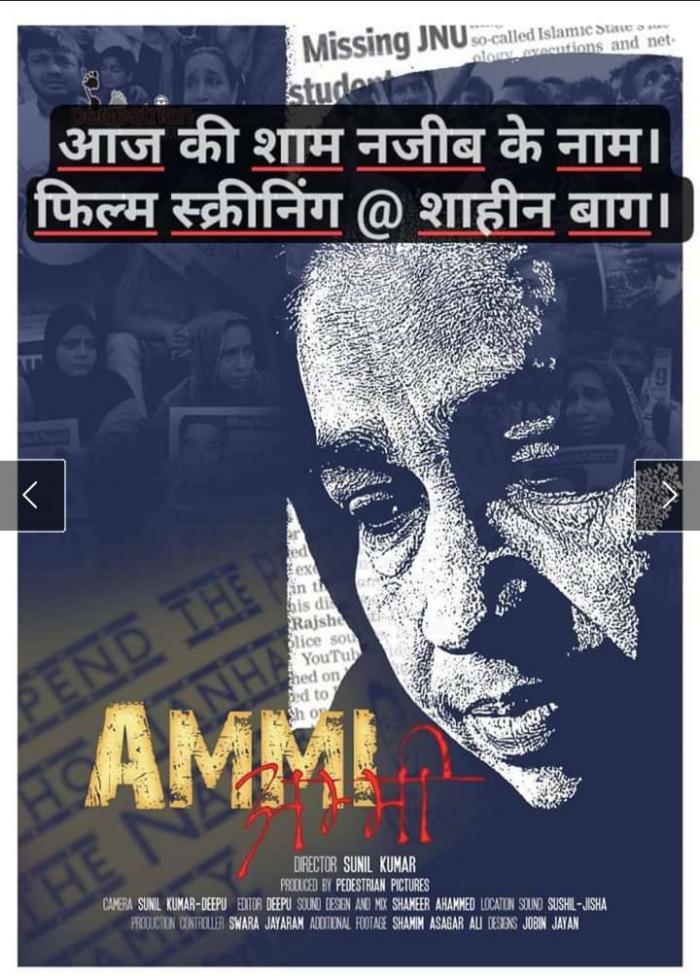
Nothing about the missing student’s life is verifiable, or believable any longer. Truth is a pending court case waiting for the victim to appear. But the victim infinitely postpones his arrival, and expectations run thin. The police are as clueless as children about the boy’s disappearance. In Kafka’s The Castle, K is told, ‘We have a saying here that you may be familiar with: official decisions are as shy as young girls.’ In Najeeb’s case, there is official reluctance towards being decisive, as the police remain shy about finding Najeeb… Najeeb is the mysteriously missing (minor) organ of India’s body politic. He is not alone. There are many young men like him, missing within India’s borders, in Kashmir, in Manipur. The organs of the state are silent. Is the state looking to find them, or looking to lose them (for us) further? There is a secret link, a secret connivance, between the law of disappearance and the disappearance of law. This is what we know as the secret law, not simply of the secular state, but of its customary counterpart, the sacred law of the nation, where the politics of majoritarianism prospers.
Excerpted from Bhattacharjee’s book, Looking for the Nation: Towards another idea of India, published by Speaking Tiger in 2018.
Get the latest reports & analysis with people's perspective on Protests, movements & deep analytical videos, discussions of the current affairs in your Telegram app. Subscribe to NewsClick's Telegram channel & get Real-Time updates on stories, as they get published on our website.










